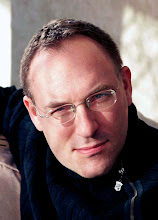My son persuaded me to sit down and watch Jamie Oliver’s new show – a series where the chef has been given carte blanche to offer some failed school kids a second chance by putting them in front of some of the finest minds in various fields of specialism: David Starkey, Simon Callow, Rolf Harris and Prof Winston tonight with more luminaries to follow. The students were classic disaffected types with a degree of native wit but no path to channel it. So what was Jamie’s take on educational reform?
It started promisingly enough with Jamie confessing that he had ‘failed’ at school, like them, and pointed out that they were not exceptions to the rule of academic success. In fact, the majority failed to achieve the notional target of five good GCSEs across a range of high value subjects (I guess this was a reference to the new English Bacc). He said that, with some lack of conviction I noted, that they were not failures but were brilliant and just needed to be given the chance to be shown that. Of course the risk is that these kids will simply be given the chance to fail a second time, in a very public arena.
The groundwork for the school did not inspire much confidence. Out came the uniforms which were promptly customised by the students, so that was a point lost to both sides. Then there was the peculiar choice of some teachers. Here I think the flaw in the thinking was that you only had to put a rocket scientist in front of a bunch of kids and they would convert to academia like evangelists. Of course, this isn’t the case. A teacher first and foremost must have good interpersonal skills. That is an absolutely vital prerequisite that no amount of brains or reputation can replace. As David Starkey proved with clarity as he held his first history class. Right from the off he was on the wrong note. In the space of a few minutes he had picked on a student and called him fat. Not only did the student react and point out that this was bang out of order, but so did most of the rest of the class. Then Starkey sneeringly asked if the student thought he was being clever by challenging his authority. To which the student rather sharply retorted by asking Starkey if he thought it was clever to humiliate a student, just so that he could feel superior by putting someone else down? There’s impressive emotional intelligence, I thought.
What this brought home, rather starkly, was that intelligent teachers are not the answer per se, and here one has to challenge one of the implicit ideas of the series: that the kids’ failure was down to the teachers and the schools they had attended. If only they had had a nice school, like Jamie’s, and experts like David Starkey, then they might not have failed. So, back to teacher bashing, in effect.
It always depresses me how willingly most people are prepared to offer an opinion about education on the basis of no expertise in the matter, just a set of prejudices drilled into them during their own school days. A constant parade of education secretaries have dictated their views on what makes for good education without any consultation of teachers and students. Oh, they’ll happily talk to headteachers and college principals, but they are often careerists (successful careerists) who are in the process of losing their grip on classroom realities. Not all of them, I am happy to say. There are still quite a few managers of education who still reflect on the principles of education, but they are fighting a rearguard action.
Of course the real problem with education is systemic. For a rather good exposition of the failings of the current educational paradigm I suggest you might look at Ken Robinson’s excellent TED speech:
http://www.ted.com/talks/ken_robinson_says_schools_kill_creativity.html
It’s not a perfect answer, as we can’t, and shouldn’t, all be artists but he is right to point out the crushing shortcomings of a system predicated upon a very narrow definition of knowledge. I have to admit that I tend to be one of those who think that it is important to push certain subjects to the top of the agenda and this was a good reality check. The key thing is to balance the provision of ‘can do’ tools to students while providing them with the opportunity to nurture their creativity. We need to constantly question the point of education and make the system respond to the range of intelligences embodied by an increasingly diverse student body.
I rather fear that the Dream School, as it is currently constituted, is going to turn out to be a frustrating nightmare rather than delivering much of real value to those involved in the process.
Then I watched this clip
http://www.youtube.com/watch?v=z1AH_lKDQF8
It certainly does present a very different version. And I'm confused - what happened to the confrontation that was in the televised edit? There's no inkling of it here. Either it was cut from this version, or there were two sequences of film shot. In which case Channel 4 are playing a very dodgy game.
This version shows Starkey in a much more positive light, and he does seem to hold the attention of the class far better than he did in the TV cut. It is an interesting lecture and some of it will have sunk in, but it is at the end of the day largely a monologue and rather rambling at times. What is interesting is that his rather hard edged take on the realities of succeeding and failing at school was accepted by most students who recognised the truth of his words. Which is encouraging.
On reflection I can't help suspecting that there must have been two 'lessons'. Both Starkey and the students seem to have different behaviour in each film. It's very suspicious.
Thursday, 17 March 2011
Subscribe to:
Post Comments (Atom)


1 comment:
highly frustrating that a potentially ground-breaking programming 'experiment' would be sanitised or re-edited to satisfy someone's agenda or protect a reputation.
Post a Comment